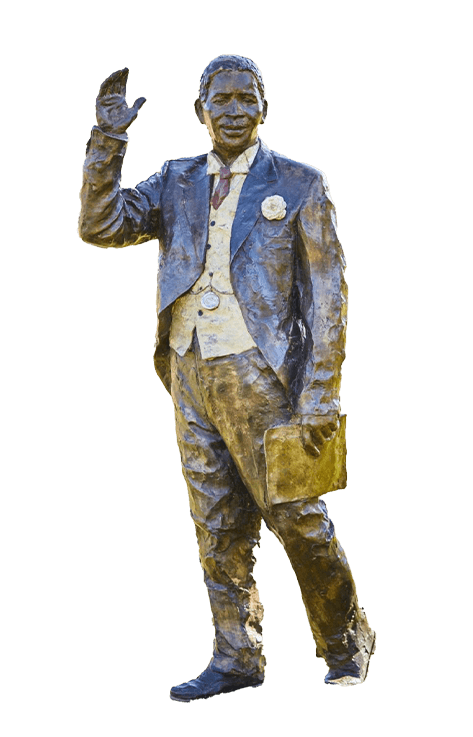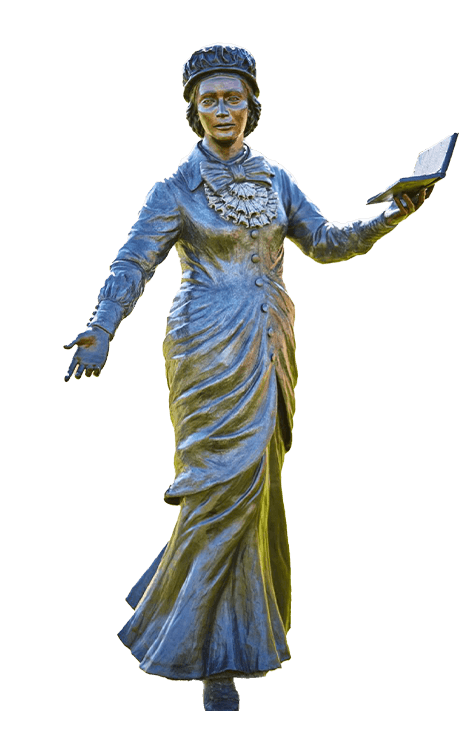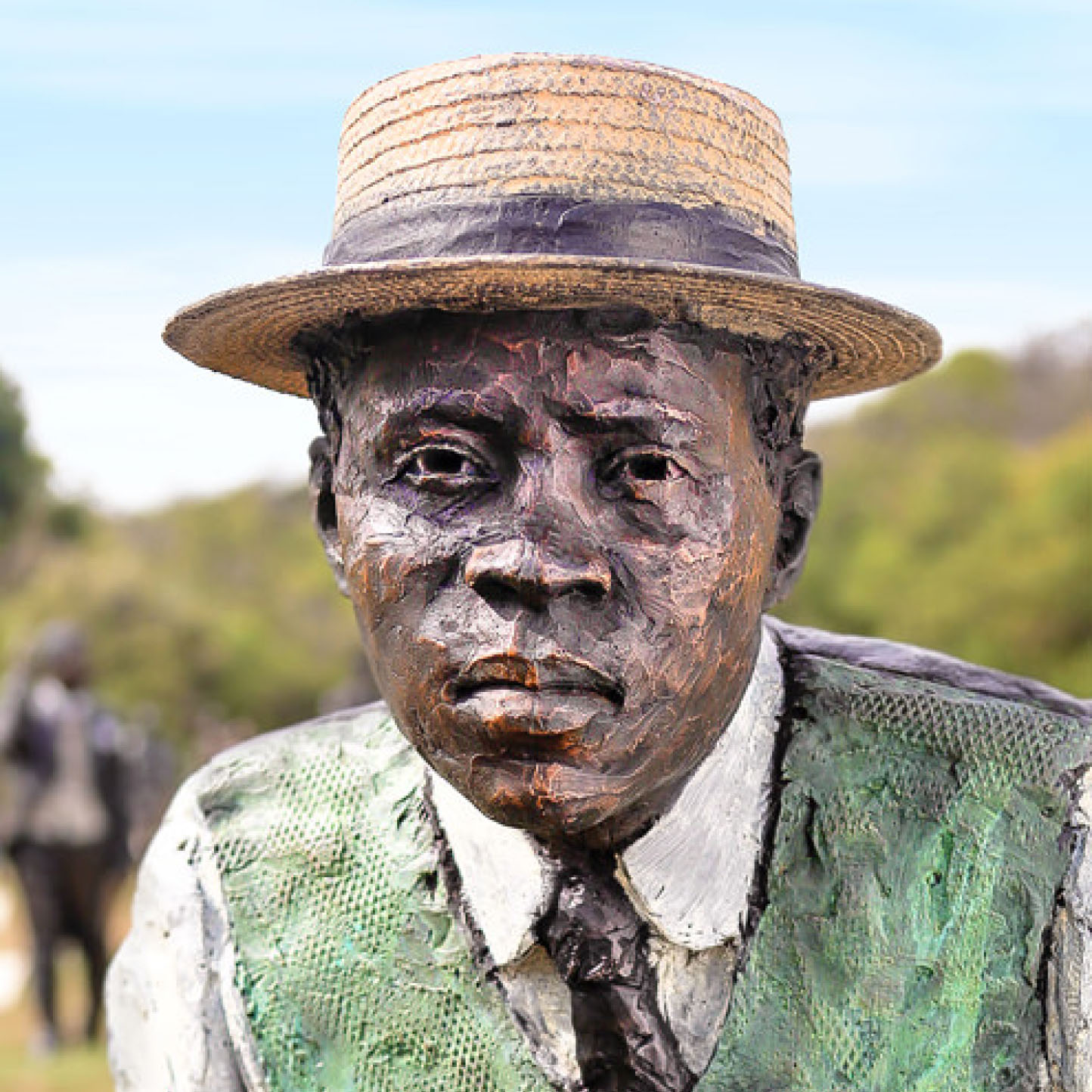
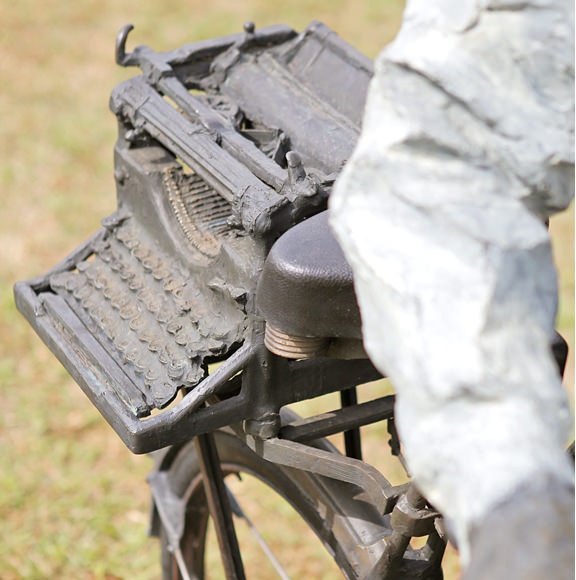
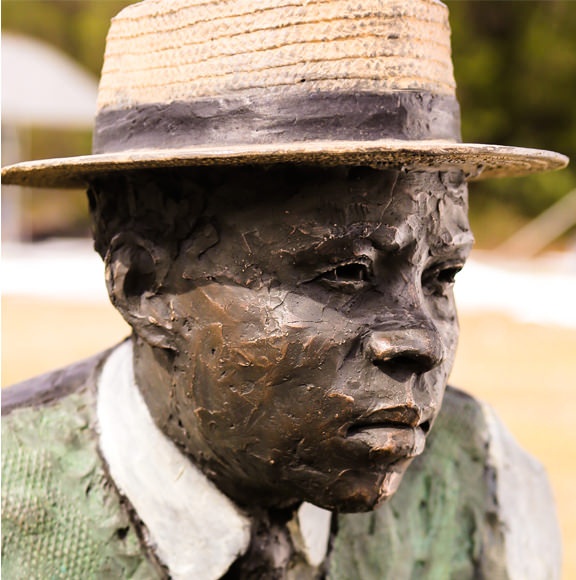
"A great, intelligent leader; a forceful public speaker, sharp witted, quick of thought, critical; a leading Bantu writer, versatile, rich, and prolific; a man who by force of character and sharpness of intellect rose to the front rank of leadership notwithstanding the fact that he never entered a secondary school; a real artist, passionate, assiduous, alert, keenly sensitive. Such were the qualities of the late Mr. Sol. T. Plaatje whose death will be deeply mourned in literary, social, political, and religious circles throughout British South Africa."
An obituary note by H.E. Dhlomo. 'An Appreciation' in Umteteli wa Bantu, June 25, 1932
Solomon Tshekisho Plaatje
1876 – 1932
Author, Journalist, Founding member of the South African Native National Congress (SANNC), First Secretary General of the SANNC
Born in Boshof, Free State, Sol Plaatje completed six years of formal education, reaching standard 4 (grade 6) at Pniel, a mission station run by the Berlin Missionary Society near Kimberley.
As a young man, he studied eight languages, both European and African, as well as music and English literature. In 1894 he found work in Kimberley as a postman before moving to Mafeking in the North West to work as a court interpreter.
As magistrate's interpreter he would become the vital link between the British civil authorities and the African majority beleaguered inside the town's military perimeter during one of the most famous military engagements of the South African War, the Siege of Mafeking. Plaatje's Diary of the Siege of Mafeking is a record both of the siege and of his early experimentation in prose, mixing languages and idioms and full of bright humour. The diary was published posthumously in 1973, having been discovered by two British scholars.
Though he excelled in the Civil Service entry examinations that he wrote in English and Afrikaans, Plaatje could not make a career in the South African Civil Service. After the Anglo-Boer War he took up journalism, editing two seTswana newspapers, writing numerous editorials and contributing to many other South African journals.
He played a crucial role in the 1912 formation of the SANNC, later the African National Congress, and was elected its first secretary general. He worked tirelessly to prevent the passing of the Natives Land Bill of 1913 and wrote a harrowing account of its impact on African peasants and tenant farmers in the Free State and Transvaal.
In 1914 he travelled to London as part of the SANNC delegation to petition the British government against the legislation. He remained in Britain until 1917, where he wrote Native Life in South Africa, recounting what he witnessed in his country after the Land Act became law. He dedicated the book to his friend Harriette Colenso. While in Britain, he also wrote Mhudi, generally considered the first full-length novel by an African writer published in English.
On his return Plaatje spent the next two years travelling through South Africa, often on his bicycle, investigating the effects of the Natives Land Act of 1913. In the early 1920s he travelled to Canada and the United States where he was warmly received by the nascent nationalist movement led by Marcus Garvey.
Through numerous public appearances, he built bonds between the South African and African American movements. He paid his own way by publishing and selling 18,000 copies of a booklet titled The Mote and the Beam: an Epic on Sex-Relationship twixt Black and White in British South Africa at 25 cents each.
Plaatje returned home to Kimberley to find the SANNC weakened. Despite its name change to the African National Congress in 1923, it had been overtaken by more radical forces.
During the final years of his life, Plaatje withdrew from political activities and devoted himself to cultural and literary work, including translating four of Shakespeare's plays and working on a seTswana dictionary. He was a fierce opponent of tribalism and represented the new spirit of national unity among African intellectuals. Plaatje married Elizabeth (nee M'belle), with whom he had five children.
He died in Pimville, Johannesburg, in 1932 and was buried three days later in the West End Cemetery in Kimberley.
In 2004 the South African government conferred the Order of Luthuli in Gold on Plaatje for dedicating his adult life to the cause of restoring the dignity of oppressed South Africans and exceptional contribution to the struggle for a free and democratic South Africa.
